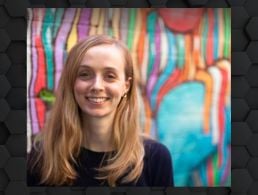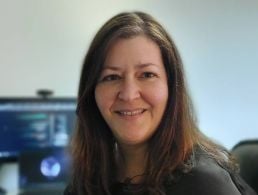Data science is an incredibly broad area and knowing what role to pursue can be challenging. Hearing from someone already at work in the industry may help.
When you’re starting out in your career, it can be hard to see a straight path to where you want to end up. Sometimes you even realise, very quickly, that the path you’ve started on is not the one you want to stay on.
Luckily for Steven Tobin, data scientist at Boxever, it’s never too late to change your mind, and there are many different routes to a career in data science.
What first stirred your interest in a career in this area?
While I was studying for my PhD, it was becoming increasingly clear that data science was going to be the next big thing – there was a real buzz around machine learning, artificial intelligence (AI) and big data. Out of personal curiosity, I took some online courses in data science and machine learning, and really enjoyed them. I also started thinking about careers outside of academia where I could work on applied problems rather than pure theoretical work. After a brief stint as a postdoc, I made the decision to pursue data science full time.
What steps led you to the role you now have?
I find it quite difficult to pick specific moments – it really feels like a continuous path.
An undergraduate degree in computational physics cemented my choice to get a PhD. That PhD, in Trinity College Dublin’s Foams and Complex Systems group, sparked an interest in graph theory and network research. My postdoctoral work on graphs in the University of Melbourne math department provided much of the knowledge that I relied on in my first data science role building recommender systems. At every step along the way, I picked up skills that would prove indispensable when I started at Boxever.
It’s been a very interesting journey so far.
What were the biggest surprises or challenges you encountered on your career path?
The move from academia to industry, without a doubt.
I was used to working by myself, on projects that I chose or largely directed. Being part of teams, relying on others – and being relied on, in turn – and working towards a company’s goals was a big adjustment. You have to be adaptable and willing to learn from your co-workers. I’ve been very lucky with the people I’ve had the opportunity to work with.
Was there any one person who was particularly influential as your career developed?
The VP of engineering in my first industry role.
The quality of code from engineers must meet very different expectations than that from academics. A hacked-together prototype is often enough to get that research paper out the door, but it is certainly not production ready.
That VP was a huge help, as I learned how to contribute to the company’s engineering efforts and move data science projects from prototypes to deployed systems.
What do you enjoy about your job?
The variety. Over the past months, I’ve gotten the chance to work on statistical tests for clients, model passenger behaviour, build recommender systems, and help build reports and marketing materials. Sometimes a task is straightforward (or at least seems so at first!) and the challenge is in execution and efficiency. Some tasks are more open-ended, and finding out if they are even possible is part of the fun – a little like the best parts of academic research.
There’s always something new to do, or another project to work on if I feel frustrated.
What aspects of your personality do you feel make you suited to this job?
I’ve always been curious about how things work, how to fix them and how to improve them. That’s what drew me to science in school and college. I enjoy the process of solving problems: exploring, hypothesising, testing, iterating and building. Even problems that seem mundane on the surface can lead to real insight if you keep an open mind.
How has Boxever supported you on your career path?
Data science and AI are both taken seriously at Boxever, and [it has] put a lot of trust and resources behind me and the rest of the team to deliver these technologies for our customers. I take that support as a responsibility to do the best job I can, to improve my skills constantly and to help the company as much as possible. I have regular meetings with management to discuss where I am and where I think I should be heading, and how that can fit in to the company’s overall strategy.
What advice would you give to those considering a career in data science, or just starting out in one?
Make sure you really want to do it. Data science (and science in general) is very rewarding, but can be very frustrating. When you solve a difficult problem, it’s a great feeling – but that can be after weeks or months of a hard slog, during which it feels like you’ll never get there. My PhD was great training for dealing with that process.
Never stop learning! Data science is an incredibly exciting field and touches so many aspects of our lives. I think anyone in the field owes it to themselves to try and explore and experiment constantly.
Stay humble and remember how little you know.
Looking for jobs in tech or science? Check out our Employer Profiles for information on companies hiring right now.




